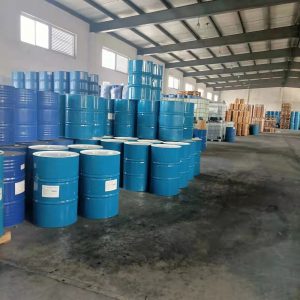Chemical composition analysis and testing of metal degreasing surfactants
Composition analysis provides multiple conveniences for various industries, and its technology lies in the exploration of unknowns and the analysis of positional composition, etc.. Composition analysis testing organization through scientific analysis technology, to help enterprises to analyze and determine the sample target and a variety of components. We can also analyze quantitative and qualitative samples for our customers to identify the content of materials and foreign materials related.

When you do not know what is composed in the product, you can carry out composition analysis testing to produce results. Component analysis is the use of scientific methods to analyze the composition of the product, qualitative and quantitative analysis of each component, and then restore the composition of its component formula composition of the process, in the field of materials research and development is known as reverse engineering. The purpose of compositional analysis is to understand the composition, elements, ratios, defects, impurities and other issues of a product.
Component analysis is generally used in five micro-spectrum: spectroscopy, chromatography, energy spectrum, mass spectrometry, thermal spectrum and other comprehensive analysis methods, combined with the relevant industry’s experience in the development of ingredient formulations, the use of a complete library of standard raw materials, the integration of the reduction into a high degree of similarity to the basic ingredient formulations, ingredient analysis is generally common in modern product research and development, ingredient analysis and testing is for the unknown ingredients, unknowns and so on, through the analysis of the ingredient analysis and testing to Determine the target composition of the sample of each component is what, to assist in the qualitative and quantitative analysis of the product, to identify different samples of materials, raw materials, additives, characteristics of the composition and content of foreign substances.
Component analysis commonly used testing equipment: gas chromatography / mass spectrometry (GC-MS), liquid chromatography / mass spectrometry (LC-MS), nuclear magnetic resonance spectrometry (NMR), infrared spectrometry (IR), Gel Permeation Chromatography (GPC) Plasma Emission Spectrometry (ICP-AES) Plasma Mass Spectrometry (ICP-MS), Atomic Absorption Spectrometry (AAS), atomic fluorescence spectrometry, ion chromatographs, ion chromatographs and other analytical equipment. spectrometer, ion chromatography, X-ray fluorescence spectrometer and so on.
The following are some commonly used procedures for analyzing components:
1. Sample preparation: Select representative samples and carry out the necessary pre-treatment, such as sample grinding, dissolution, dilution, etc., in order to ensure the representativeness and operability of the analysis.

2. analysis method: according to the required analysis objectives, select the appropriate analysis method, such as chromatography, spectral analysis, mass spectrometry, etc..
3. Instrument testing: according to the selected analytical method, prepare and debug the corresponding instruments and equipment, and carry out calibration and calibration to ensure the accuracy and stability of the instrumentation.

4. Sample Measurement: The pre-treated sample is placed in the instrument for measurement and the obtained data are recorded.
5. Data Processing: The raw data are processed, such as peak identification, peak area or peak height integration, etc., to obtain the quantitative results of each component.
6. Result Reporting: Based on the analytical results, the components of the substance measured are evaluated and interpreted to determine their content, purity or different related indexes, and a report is written or an explanation is provided.
Know Analytical Technology has accumulated profound experience in chemical product profiling through a variety of analytical testing methods, and qualitatively identifies and quantitatively analyzes unknown substances through focused, reliable and comprehensive separation and testing methods, providing scientific basis for adjusting formulas in scientific research and production, research and development of new products, and improvement of production processes, and at the same time, can provide post-production technical guidance according to the needs of customers.

